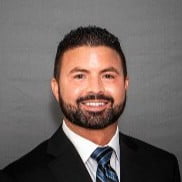Choosing Between Faith-Based and Secular Addiction Recovery Programs
Addiction doesn’t just affect the body—it shakes the soul. Whether you’re struggling yourself or watching a loved one suffer, the pain is deep and overwhelming. Recovery is possible, but the path you choose can shape your healing journey in powerful ways.
One of the biggest decisions people face is choosing between faith-based vs secular addiction treatment. Both approaches have helped thousands reclaim their lives, but they offer different philosophies and tools for recovery. Understanding the difference between religious vs non-religious rehab programs can help you choose the support that fits your values and gives you the best chance at long-term sobriety.
“Faith is taking the first step even when you don’t see the whole staircase.” — Martin Luther King Jr.
Let’s walk through the differences, benefits, and truths behind both models—because choosing between detox to rehab, sober living, and healing is not just about logistics. It’s about what speaks to your heart.
The Rising Danger of Addiction in America
Addiction is everywhere. In 2022, over 46 million Americans struggled with substance use disorder, according to the National Survey on Drug Use and Health. Opioids, alcohol, stimulants—these aren’t just news stories. They’re affecting real people in every town, including places like Ohio, where overdose rates have remained among the highest in the country.
And here’s the most shocking part: fewer than 1 in 10 people with a substance use disorder actually receive treatment.
Why? Stigma, cost, and not knowing where to start are big barriers—but so is confusion about the type of help available. This is where the choice between faith-based and secular rehab comes in.
Faith-Based vs Secular Addiction Treatment: What’s the Difference?
🙏 Faith-Based Rehab Programs
Faith-based rehabs integrate spiritual guidance, prayer, scripture, and often pastoral counseling into traditional treatment models. Most follow Christian teachings, but some centers accommodate other faiths like Judaism or Islam.
Key features include:
- Daily devotionals or Bible studies
- Group prayer and spiritual mentoring
- Church attendance or pastoral care
- Emphasis on surrendering addiction to a Higher Power
Programs often blend these spiritual elements with clinical care—like therapy, detox, and peer support—making it a comprehensive and soulful path to recovery.
🧠 Secular Rehab Programs
Secular or non-religious rehab programs are rooted in science and psychology. These programs focus on:
- Cognitive Behavioral Therapy (CBT)
- Medication-Assisted Treatment (MAT)
- Trauma-informed care
- Mental health therapy and dual diagnosis treatment
- Peer support without spiritual themes
Rather than referencing God or scripture, secular rehabs emphasize evidence-based tools to overcome addiction, withdrawals, and emotional triggers.
How to Decide: What Path Fits Your Needs?
🧭 Ask Yourself These Questions
- Is faith already a part of your life?
If you already lean on spiritual practices for strength, faith-based rehab may feel more natural and grounding. - Do you want clinical over spiritual guidance?
If you’re more comfortable with talk therapy and medical treatment, a secular program may feel more structured and predictable. - Would blending both approaches help you most?
Some programs offer optional spiritual support within secular frameworks. You don’t have to pick one extreme.
❤️ Both Models Can Lead to Hope
Whether you choose a religious or non-religious rehab, what matters most is that you choose. Addiction doesn’t wait. Every moment in active use increases the risk of:
- Overdose
- Liver and brain damage
- Depression or suicide
- Legal and financial trouble
- Broken families and relationships
Recovery isn’t just about surviving—it’s about thriving. Sober living and long-term support can help you stay strong and build a life that feels joyful and free.
What Does the Research Say?
Studies show that both faith-based and secular programs can be effective. However:
- Faith-based programs often show higher retention rates and reported satisfaction among participants who already identify with a religion.
- Secular programs tend to be better suited for people with complex mental health needs or those who do not want spiritual content.
A 2020 study in the Journal of Substance Abuse Treatment found that religious commitment is a strong predictor of long-term recovery, but only when it aligns with the individual’s beliefs.
So the bottom line is: the best rehab is the one that aligns with YOU.
Real Recovery Is Personal
From detox to rehab, and beyond, the road to healing is not one-size-fits-all. Some people feel safe and inspired by prayer. Others heal through therapy and scientific strategies. And some find a beautiful middle ground—blending faith with proven clinical care.
You don’t have to figure this all out alone. Reach out. Ask questions. Whether you’re in Ohio or across the country, there are rehabs—both faith-based and secular—ready to walk with you.
Choosing Compassion Over Labels
Addiction doesn’t care if you pray or meditate, if you go to church or group therapy. But recovery does care—that you show up. That you stay open. That you let someone walk with you.
If your heart feels called to spiritual healing, trust that. If you want a clinical path that’s focused on evidence and structure, trust that too. There is no wrong door to recovery.
What matters most is that you take that first step toward hope, healing, and wholeness.








